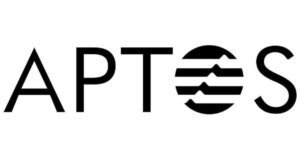South Korea to Reduce Taxes for Blockchain Startups
Photo by Anton Strogonoff on Unsplash
With the impending legalization of cryptocurrency exchanges and businesses, South Korea continues to make way for blockchain development. A leader in the industry, South Korea is considering reducing taxes for blockchain startups to fuel ‘growth through innovation.’
Meeting on ‘Growth Through Innovation’
On July 13, 2018, the South Korean Ministry of Strategy and Finance met to discuss plans for promoting growth through national investment projects, such as blockchain startups and new technologies.
In the 4th Vice-Ministerial Meeting, Vice Minister Ko Hyoung-Kwon presented several solutions to enhance innovation within the country, including a restructuring of corporate taxes that would enable greater support for job creation in emerging sectors.
“The government is working on revising the current corporate investment support to promote job creation and new technologies.”
In the section entitled, “Redesign corporate investment support to promote employment, as well as new technologies,” Ko summarizes the details of the tax reduction, especially for blockchain projects:
“We will revise the corporate and income tax incentives to promote job creation and expand the tax reduction for new growth engine investment and ease requirements for new technology support, including the blockchain technology investment support.”
The news follows South Korea’s recent classification of cryptocurrency and blockchain-related businesses, indicating a national focus on promoting growth in the nascent digital economy.
A Leap Forward in Cryptocurrency & Blockchain Legitimization
The National Statistical Office, the Ministry of Science and Technology and the Ministry of Information and Communication, along with several advisory companies and industry experts, began discussion of a categorization system in June of 2018.
According to Korean news outlet TheBchain, the classifications will include three divisions: Software Development and Supply Business; Computer Programming, System Integration and Management; and Information Services. Each division will hold several subcategories to specifically classify numerous businesses based on blockchain operation and use-case.

Cryptocurrency exchanges will gain legal classification as “crypto asset exchanges and brokerages,” while smart contract platforms such as Ethereum, NEO, and EOS will be categorized as “blockchain based system software development and supply businesses.”
In the burgeoning blockchain and cryptocurrency industries, it’s becoming evident that South Korea has made active efforts to remain at the forefront of regulation and innovation.
On June 21, the South Korean Ministry of Sciences and ICT announced their “Block Chain Technology Development Strategy” – divulging plans to invest over 230 billion KRW (~207M USD) into public and private blockchain projects.




 CoinGlass
CoinGlass 


 Farside Investors
Farside Investors 

























































































